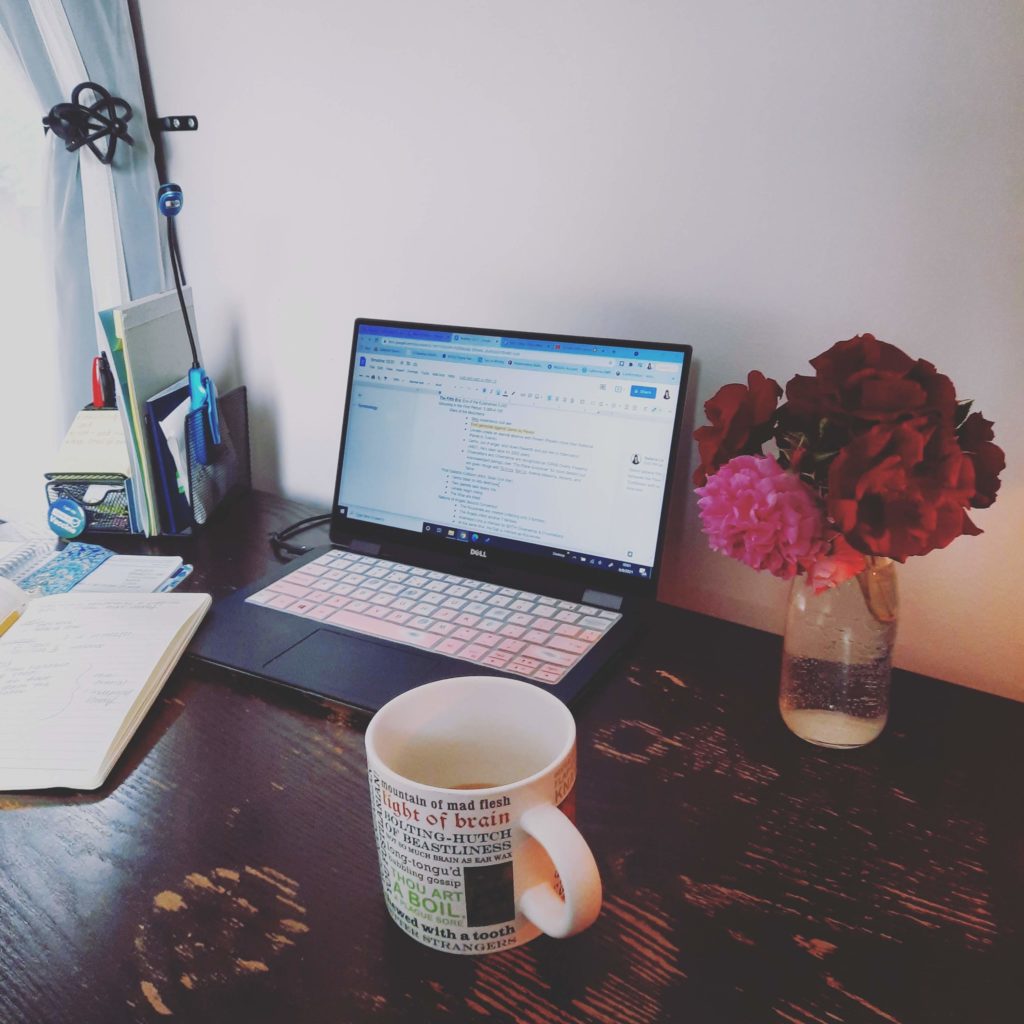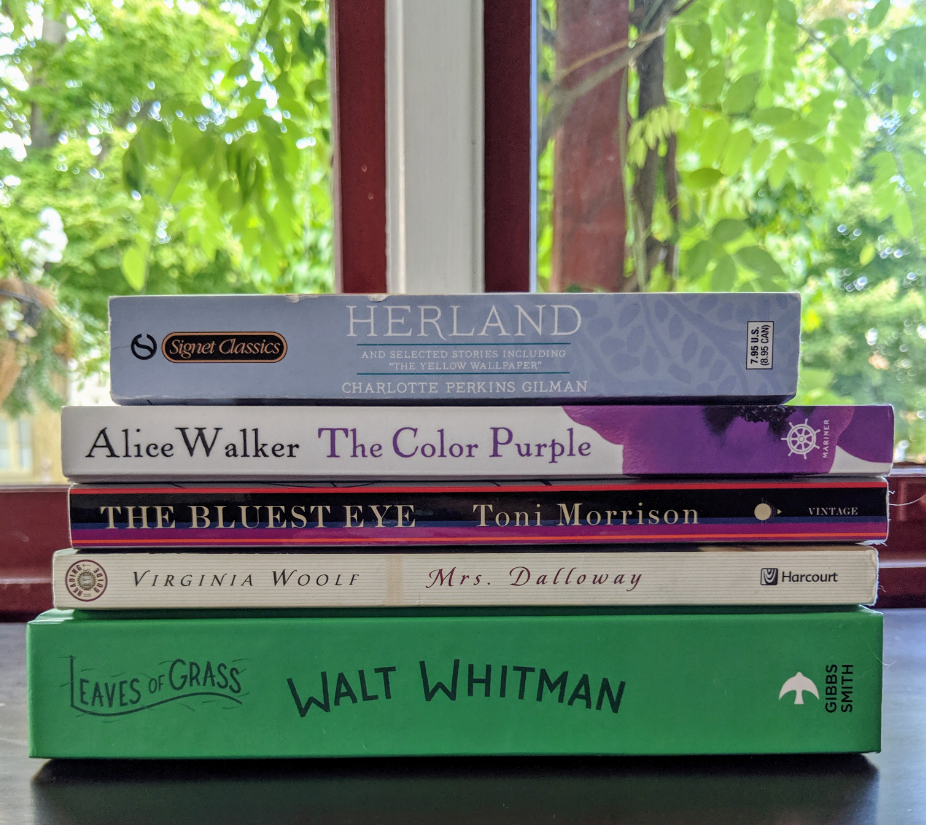Something I wished I had when I was a young and aspiring writer was some tips from other writers. I never wished that it would be from an award-winning author or renowned poet–that was too intimidating–I just wanted someone to share their experience and provide some guidance.
There are tons of articles and blog posts out there that provide great advice and information for writers. However, I thought it may be helpful to share some of my expereinces as well. Below are just a few pieces of advice and anecdotes that explain my experience and approach to my work as a writer. I hope this helps, and happy writing!
#1 Never underestimate the importance of editing
I definitely have made this mistake before! As a young writer, I thought I was invincible and consequently thought I didn’t need to edit, but I quickly learned that I was wrong. Editing is a natural and necessary part of the writing process and it should never be underestimated or overlooked.
Editing can include a range of actions such as transforming entire scenes, modifying sentence structure, or changing the formatting. There are some specific forms of editing as well such as content editing (includes flow, structure, and evaluating completeness), copy editing (mostly professional mechanical corrections), and proofreading (usually the last stage of editing and includes minor grammatical edits). However, overall editing can be all of these and more; it depends on who’s editing your work! If you ask a non-writer to edit your work then they will probably notice large plot holes, basic grammatical errors, spelling corrections, and reader-specific questions. On the other hand, writers or professional editors may be able to offer analysis of your characters and story structure. Both options are beneficial to developing your writing, you just have to decide which is more necessary depending on where your manuscript is.
If you feel that you’re just not a great editor, I challenge you to simply read through your manuscript once. Reading and reviewing never hurts!
#2 Know your plot!
Sounds trivial, I know, but it’s important. Losing sight of the end goal is easy and when this happens, the plotline can get murky–especially for the reader.
If you’re having trouble tracking your plot, write a simple, four-sentence synopsis for your eyes only:
First sentence: setting, character, basic situation.
Second sentence: big problem/quest/villain intro.
Third sentence: what the character is going to do about it.
Fourth sentence: how the story ends.
As you write, you can use this basic structure to keep your story on track! Each section or chapter should ultimately pertain to one of the major points above. If not, then the scene or section may not be necessary.
You can also write out a longer synopsis or a list of events and check them off as you go. Personally, the event list is something I’ve held steadfast to for the last 10+ years.
#3 Create your sacred writing space
When you’re outside of your comfort zone it can be hard to be yourself and open up. Same for your writing!

Whether it’s a desk or an outside bench, your writing space needs to be a safe place where you have all of your essentials. For me, that’s my bedroom desk that has an outlet nearby. Usually, I have a candle burning, study music in the background, and some coffee on hand.
Of course, your space will change over time. Maybe you’ll add some plant babies or a marker board. Regardless of what you change, always make sure you feel safe and comfortable in your space. When you’re in a place that doesn’t work for you, your writing won’t work either.
#4 Research EVERYTHING
As writers, what we say matters. Every word. So when you’re preparing for a new book or just looking up grammar help, researching and checking your sources is important.
I know there’s a lot of people that probably dread research just as much as me, but it’s helpful! Research is still my arch-nemesis. Yet, while I don’t necessarily like research any more than before, I do have an appreciation and respect for it.
Depending on what you’re researching, it can be fun. Looking for social media promotional ideas? You’ll probably end up researching design and how to make your advertisements concise and catchy. Or if you’re trying to get ideas for fantastical characters, researching mythical lore and fantasy creatures on Google Images can be exciting. Of course, other parts of research can be dreadful, but just remember that what you’re doing will impact your writing for the better.
#5 Get to know your characters
Characters are arguably the most important aspect of your story. They add spice, create drama, solve the plot, drive the plot, and oftentimes, they are a plot. Creating good characters is pertinent to the success of your story, so understanding and connecting with them is really important.
There’s a lot of ways to connect with your characters, but ultimately you want to know them like you know your best friend. What sets them off? What makes them happy? How do they smile? What’s their biggest fear? What do they want in life? How do they laugh? Do they have a morning routine?
Some ways that I get to know my characters is through writing them letters and having them write back. This also really helps develop a character’s voice and personality. Another method is to get a list of questions to ask your character and start a voice recording. Just talk about your character for at least 5 minutes. You’ll end up going down rabbit holes and backstories you never knew existed!
You can find a lot of character development prompts and ideas on social media, especially Pinterest. If you’re still struggling to build those characters, check out my pinterest board on “Character Building” here.
#6 Read! Read! Read!
I can’t overstate this enough! Either if it’s a self-help book, the Bible, or your favorite novel from when you were a kid, reading is key!

Of course, you want to aim to read things you enjoy and that match with your genre of writing. However, reading at all helps develop your writing. Reading will help inspire new ideas and provide a broader knowledge base for things like interpersonal dialogue, religion and lore, storytelling techniques, and more.
Not sure what to read? Start with some books that are similar genres to your writing. Then add on some articles and books about writing techniques and practices. You’re bound to find something helpful!
#7 Carry paper and pen (yes, that means I’m encouraging you to buy that really nice leather notebook!)
Most of my ideas come to me randomly so keeping a notebook and pen is absolutely necessary. If I don’t have space in my purse or pocket, I always make sure I have my phone available with a note-taking app.
As you become more in-tune with your writing, ideas will circle your mind. Additionally, as you get deeper into a story and it grows more complex, it can be difficult to not think about writing all the time. Carrying a notebook and pen can be incredibly useful for this purpose, as well as many others.
You don’t need to buy the nicest and largest notebook–usually, a memo pad works perfectly–but having it handy can ensure that you’re prepared when those ideas come jumping out; or if you just have that urge to write about something!
#8 Ask people to read your writing
Some of my past blogs have touched on this. Writing communities help gain support, a fan base, and especially a readership. You should ask writers and non-writers to read your writing; there are benefits to both!
When other writers read what you’ve written, not only are you able to inspire each other, but they may pick up on things you never even noticed. Writers reading your writing will pick up on in-depth writer things like character development, plot development, and thematic elements. Additionally, other writers are usually able to provide good advice and insight since they understand the creative process.
When non-writers read through your writing you can get the authentic reader reaction. Questions that you have been thinking about such as “will they like my writing?” or “is this part boring?” will be answered! Furthermore, avid readers will recognize bad writing when they see it, which is good for you! The last thing we want is to publish something with obvious plot holes and grammatical mistakes. Non-writers will definitely catch these things!
Don’t forget to proofread before you give your writing out!
#9 Think about your goal as a writer
If you’re a younger writer then smaller goals are appropriate such as achieving a certain word count or working on different aspects of your story. If you’re a more established author or poet, creating a brand appearance, attending workshops, and researching website creation might be some of your goals. But overall, you should constastly keep your writing mission at heart.
I never had a writing mission up until a few years ago when I realized that I didn’t know why I was writing. I knew I liked it and I knew I was good at it, but I didn’t quite understand my purpose as a writer. But now I understand that my mission is to encourage and inspire others and help promote truth–either if this is through writing, dancing, or simply conversing with someone. Now that I understand this, I aim to create goals that enhance and progress my mission.
Maybe this isn’t something you’re into, that’s okay! Regardless, you should always think intuitively about what you do as a writer and how it impacts others, and mostly, how it reflects on you.
#10 Be patient with yourself and your craft
When I was younger and just getting into the publishing world, I was anxious to get my first novel on the shelves. But now? I have more regrets than proud moments.
There is no right way to write and get published. However, there is a right way to treat yourself and your craft: patience.
Honestly, this piece of advice is the first thing I wished I had heard as a young writer. For years, I sped through the editing process and the boring parts of stories and completely missed the importance of editing, character development, and detail. In the end, this was detrimental to my progress as a writer. If I had just taken a moment to revise or review my work, I would be in a much different place today.
Writing takes a lot of time and it’s difficult to not be rewarded for something you’re good at–trust me, as a dancer and writer I know how that is. However, just because something takes a long time doesn’t mean you’re doing something wrong and it doesn’t mean your bad at something. As you get anxious/excited/nervous about publishing or upcoming events, I encourage you to slow down and be patient with the process.
